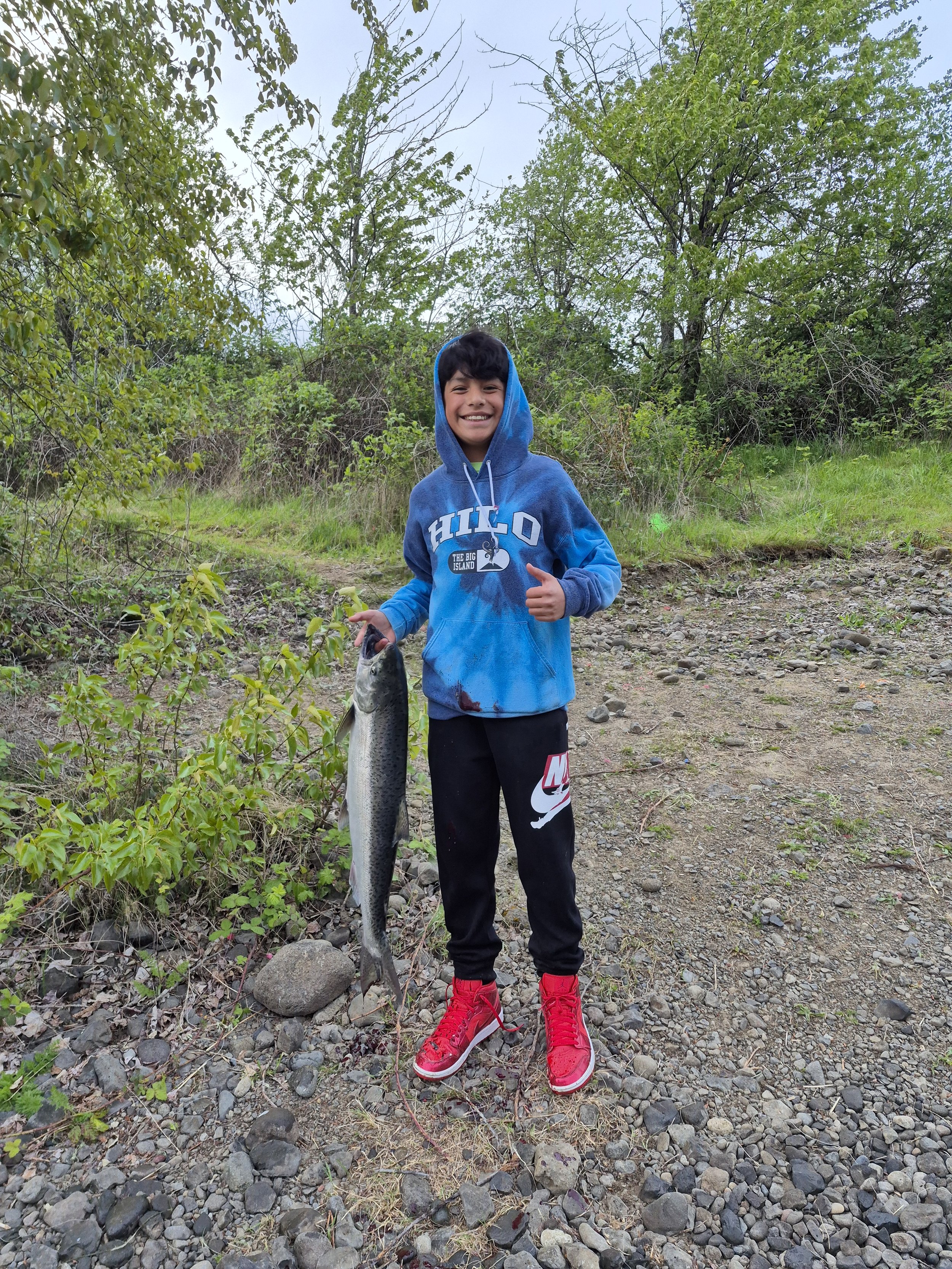Papalaxsimisha Creates Opportunities for Healing Through Connecting to Culture
Reconnecting to cultural identity has the power to heal. As does spending time in community. That’s why Papalaxsimisha creates opportunities for Native Americans in Deschutes, Jefferson and Wasco Counties to spend time together centering traditional knowledge.
Originally, back in 2014, Jaylyn Suppah founded Papalaxsimisha in partnership with the Juntos program of Oregon State University Open Campus and Let’s Talk Diversity Coalition. Their goal was to prepare Warm Springs youth for college and careers. Atwaii elder Arlita Rhoan came up with the name, Papalaxsimisha, which means “unity” in ichishkin (the Warm Springs language).
Papalaxsimisha serves Native American and Alaskan Native families, most of whom belong to the three tribes that make up the Confederated Tribes of Warm Springs (Warm Springs, Wasco and Paiute). They focus on underserved community members, including youth and LGBTQ2S+ people.
Since 2014, Papalaxsimisha has grown from one employee to eight, and their purpose has evolved in response to community need and want for healing.
Papalaxsimisha’s goals:
Provide opportunities for collective healing
Create safe spaces for awareness and acknowledgement of historical and intergenerational trauma
Decolonize our minds, spaces and history
Center and use Traditional knowledge
Cultivate youth leadership
Cultivate safe spaces for learning, growth, development and wellness
Collaborate with community programs, partners and agencies
In 2023, Papalaxsimisha received a Justice Reinvestment Equity Program (JREP) grant to support their work to reduce violence and prevent involvement in the criminal legal system. By centering Warm Springs, Wasco and Paiute history and languages, traditional knowledge and teachings, first foods, medicines and ways of being in their programming, Papalaxsimisha fosters a sense of belonging and connection to identity. This strengthens participants’ sense of self and community and discourages them from turning to alcohol, drugs and criminal activity.
Papalaxsimisha hosts a wide range of activities, from a women’s crafting circle to programming in prisons and beyond.
Once per week, Papalaxsimisha visits Madras High School and Bridges High School to implement the Native American Student Union, in partnership with the school district. The students choose what they want to do. Sometimes this means crafts, like moccasin making or weaving. Sometimes it means movies. Sometimes Papalaxsimisha will bring in a guest speaker. Sometimes it means supporting students to organize a powwow. This year, students at Madras High School will host their third annual powwow on May 23rd.
Soon, Papalaxsimisha will take ten youth to Montana to visit Salish Kootenai College (one of 37 tribal colleges in the country) and Montana State University.
Papalaxsimisha also engages with youth in juvenile probation. And they connected with the Jefferson County Sheriff’s Office to collaborate on a boat naming ceremony. Their ultimate goal is to build and nurture relationships to protect youth.
From top to bottom, Papalaxsimisha reflects their community. Every staff member lives in the community they serve and brings their lived experience to their work. Although Jaylyn is Papalaxsimisha’s director, she is not the organization’s sole leader and decision-maker. Every decision is made collectively, with the whole staff team and community.
Papalaxsimisha is a beautiful example of culturally specific and responsive programming in action. We’re honored to number them among our JREP grantees.
The Justice Reinvestment Equity Program (JREP) supports culturally specific organizations and culturally responsive services in communities most harmed and least helped by Oregon’s criminal legal system. JREP seeks to elevate organizations that have been overlooked by traditional funding streams with the goals of reducing incarceration and racial disparities in the criminal legal system, promoting healing and advancing community safety in Oregon. Learn more about JREP.



